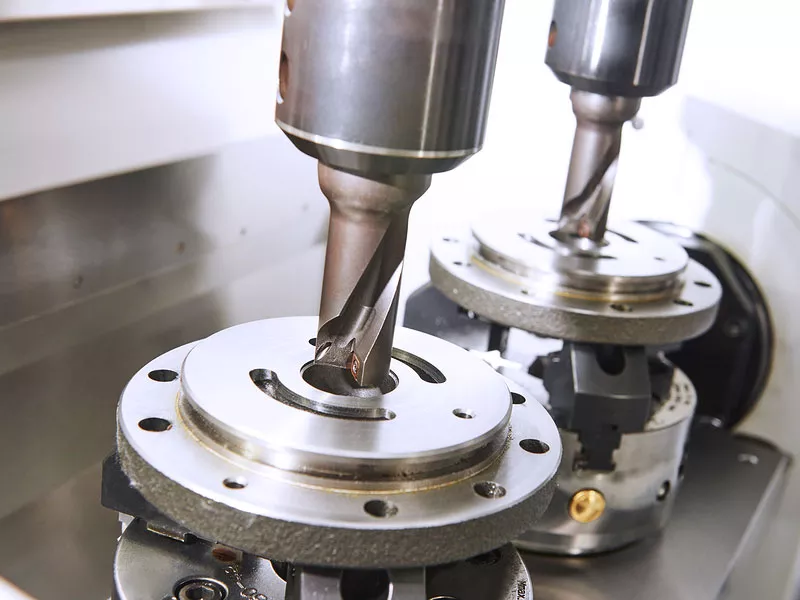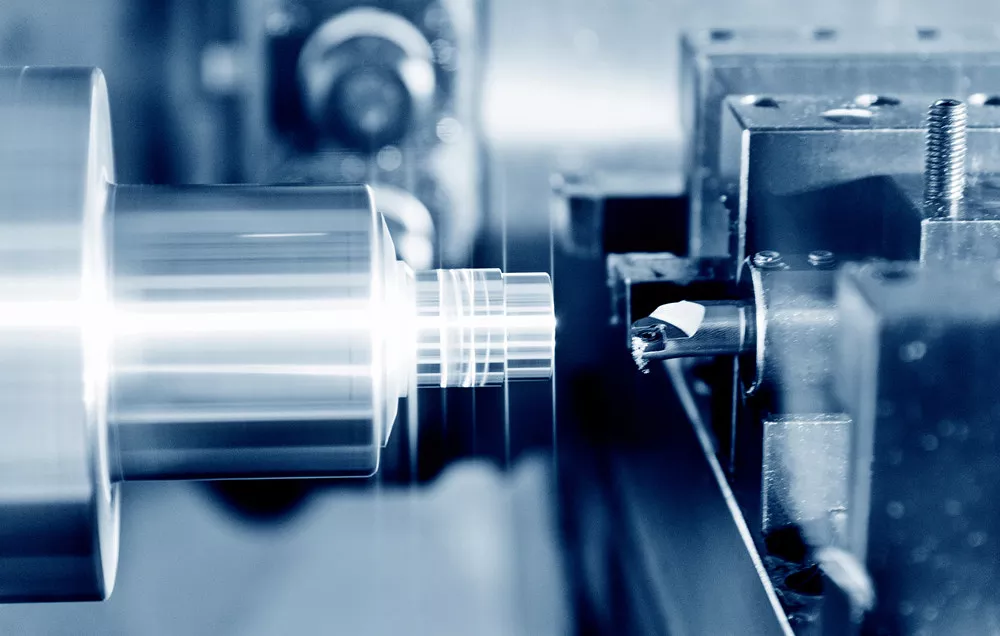More about titanium metal
Table of Contents
Titanium is a metallic mineral known in nature. Please don’t consider it inconspicuous, but those serious about titanium metal will know its power. The magic lies in the fact that it is light and strong, which makes it ideal for producing equipment that needs to be moved underweight. Due to its unique combination of properties, it is becoming increasingly popular in various industries. It is a chemical element with the symbol Ti and atomic number 22. It is a lustrous silvery-white metal with low density, high strength, and good corrosion resistance.
Properties and molecular structure of titanium
The material properties of titanium make it so attractive in a wide range of applications. The metal has a low density of 4.5 g/cm³, about half that of steel. This makes it ideal for aerospace applications where weight reduction is critical to fuel efficiency and performance. In addition to its lightweight, titanium has a high strength-to-weight ratio, which means it is very strong for its weight. It is about 60 percent as dense as aluminum but twice as strong.
The material structure of titanium also contributes to its strength and other properties. It has a hexagonal, tightly packed crystal structure, which gives it good strength and flexibility. It is a hard, brittle metal at room temperature, but when heated to about 650°C, it becomes ductile and malleable. This makes it possible to mold it into various forms using different manufacturing techniques.
Applications of titanium metal materials
One of the important uses of titanium is the manufacture of alloys. Titanium can be alloyed with iron (Fe), aluminum (Al), vanadium (V), or molybdenum (Mo) to create high-strength light alloys, and has a wide range of applications, including warships, ships, spaceflight (jet engines, space vehicles), automobiles, medical devices (prostheses, metal plates, dental fillings), golf clubs, jewelry, eyeglasses, accessories, etc. Recently, there has been a series of titanium Tableware and straws made of titanium.
Titanium alloys are commonly used in industries and components that require high strength, low weight, and excellent corrosion resistance. The aerospace industry is one of the largest consumers of titanium alloys used in various components such as engines, airframes, and landing gear. The medical industry is also an important user of titanium alloys because of their biocompatibility and ability to withstand harsh body fluids. These alloys produce implants, surgical instruments, and other medical devices.
Another common one is titanium oxide – titanium dioxide (TiO). Titanium dioxide is the most stable white substance in the world, and it has excellent hiding power, making it one of the world’s most important pigments. Titanium dioxide can be mixed in vegetable oil as white paint. This kind of paint has strong shading and covering power, so it can be applied to make very thin paper opaque in the paper industry. Besides paper, it is also applied in plastic material, textiles, white paint markings on the road, white rubber, etc.
In addition, because titanium dioxide can refract light and absorb ultraviolet light, and non-toxic, and does not cause allergies to human skin, it will also be used in sunscreen and other cosmetics. Also, because it is safe, titanium dioxide is added to food products, including frosting, chewing gum, and marshmallows.
In addition to titanium dioxide, another interesting compound is titanium tetrachloride (TiCl4). When titanium tetrachloride is kept in a sealed container, it is a clear, colorless liquid, but when it is exposed to air, it combines with moisture in the air to form a dense “white cloud” that can be used in aerial text and to create smoke screens. The smoke effects in movies and TV shows are sometimes made of titanium tetrachloride.
In addition to these common applications, titanium alloys are used in various other industries. These alloys are used in the chemical, oil, and gas industries because of their excellent corrosion resistance. They are also used in marine applications because they resist saltwater corrosion. Other applications include sporting goods, electronics, and high-end bicycles.
Machining of titanium metals
CNC machining is one of the most common techniques to shape titanium alloys into various forms. CNC machining titanium alloys can be challenging due to the strength and other properties of the metal. However, with the right tools, techniques, and parameters, it is possible to machine titanium alloys efficiently and accurately.
Regarding CNC machining, one of the most important characteristics of titanium alloys is their low thermal conductivity. This means that the heat generated during machining does not dissipate quickly, which can lead to overheating and deformation of the material. Therefore, it is essential to use cutting tools that can handle the heat and maintain the required machining temperature.
Another important characteristic of titanium alloys is their low coefficient of thermal expansion. This means the material does not expand or contract as much when heated or cooled, leading to dimensional inaccuracies during machining. To address this issue, CNC machines used to machine titanium alloys are often equipped with temperature control systems to maintain a stable environment.
The high strength and low ductility of titanium alloys can also make them challenging to machine. The material can be brittle and prone to cracking or chipping during machining. Therefore, it is important to use cutting tools that are sharp, durable, and specifically designed for machining titanium alloys.
Finally, the high chemical reactivity of titanium alloys can also pose a challenge for CNC machining. The material can react with cutting fluids, causing chemical reactions that can damage the surface finish of the workpiece. Cutting fluids specifically designed for titanium alloys must be used to avoid this.
In summary, titanium is a strong, lightweight metal with excellent corrosion resistance and other properties that make it ideal for various industries. Its material properties and construction make it popular for aerospace, medical, and other high-technology applications. If you need to machine titanium parts, you can contact us at ANPLLO.


